Executive Secretary
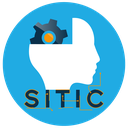
III International Symposium on “Generation and Transfer of Knowledge for Digital Transformation
SITIC 2025
III Simposio Internacional en “Generación y Transferencia de Conocimiento para la Transformación Digital” (SITIC2025)
en el marco de la
V Convención Científica Internacional de Ciencia, Tecnología y SociedadUniversidad Central “Marta Abreu” de Las Villas
Cayos de Villa Clara, Cuba
20 - 24 de Octubre, 2025
Propósito y alcance del evento
El desarrollo de las sociedades modernas no se concibe sin la informatización. La transformación digital de todos los procesos socio-económicos permite el incremento de su eficiencia y eficacia, para lo cual es necesario el empleo de las Tecnologías de la Industrialización avanzada, también llamadas Tecnologías habilitantes de la transformación digital. Esta revolución basada en la información genera un desarrollo continuo de los formatos y modos en los que se busca, recupera, procesa y utiliza la información.
No es posible avanzar en este ambiente de desarrollo sin lograr cerrar el ciclo de I+D+i, para lo cual la transferencia del conocimiento juega un papel principal. El conocimiento generado durante la investigación tiene que ser convertido en tecnologías útiles en la solución de problemas e introducidas en los procesos productivos. Por otra parte, el desarrollo de productos y servicios informáticos novedosos, que permitan alcanzar la independencia tecnológica y la generación de productos exportables, no es posible sin la incorporación de los nuevos métodos computacionales y a partir del know-how propio.
El III Simposio “Generación y Transferencia de Conocimiento para la Transformación Digital” está orientado a divulgar los principales resultados científicos alcanzados en el campo de las tecnologías de la información y promover un marco para el intercambio científico sobre estas, dentro del centro académico-científico y de este con el sector productivo y de los servicios; lo cual garantice la actualización del conocimiento existente en este campo y su transferencia hacia diferentes actores de la sociedad.
En resumen, el Simposio estará enfocado a las tecnologías de punta en Computación y a la relación universidad - empresa en el campo de las TI basadas en la transferencia de conocimiento y la innovación.
El evento incluye cursos tutoriales, conferencias especializadas y presentaciones de ponencias.
Temáticas
Las temáticas del Simposio se organizan en cuatro clusters y un subevento, los cuales se describen seguidamente.
I. Relación Universidad-Empresa para el desarrollo de las TI:
El desarrollo del ciclo I+D+i, con énfasis en el encadenamiento con los nuevos actores económicos: mipymes privadas y estatales de base tecnológica, la transferencia del conocimiento y la innovación en el sector de las TICs. Transferencia de conocimiento e innovación en la industria cubana del software. Protección y comercialización del software. Experiencias y buenas prácticas en la exportación de software y servicios informáticos. Esta temática se desarrollará como parte de la Feria de Innovación de la Convención.
II. Gestión de la ciencia abierta y transformación digital para el desarrollo sostenible de la sociedad:
1. Producción y comunicación científica abiertas: Actualidad y retos del acceso abierto a las publicaciones científicas. Gestión de datos de investigación. Desarrollo de recursos educativos abiertos. Evaluación abierta de la actividad científica. Iniciativas para estimular la participación ciudadana en la actividad científica.
2. Infraestructura y marcos regulatorios para Ciencia Abierta: Formación de estudiantes, investigadores y ciudadanos en general. Políticas y modelos. Plataformas y sistemas. Servicios de apoyo a la investigación. Iniciativas y colaboración para el desarrollo de la Ciencia Abierta.
3. Transformación digital de la sociedad: Gobernanza de datos. Impacto social. Gobierno abierto. Archivos abiertos. Redes sociales.
III. Inteligencia artificial y Ciencias de datos: :
1. Técnicas para el descubrimiento de conocimiento: Aprendizaje automático no estándar, Computación blanda y metaheurísticas, Algoritmos distribuidos para el aprendizaje automático, Redes neuronales profundas, Minado de datos masivos, Procesamiento de lenguaje natural, Minería de texto, Análisis de sentimientos. Ingeniería de datos. Grandes modelos de lenguaje (LLM). IA explicable. IA generativa. IA confiable, segura. Gobernanza de la Inteligencia artificial. Visión computacional y procesamiento y análisis de señales.
2. Infraestructuras para la ciencia de datos: Análisis de datos basados en computación de alto desempeño y computación en la nube. Infraestructuras heterogéneas para ofrecer HPC y Bigdata. Plataformas de computación en la nube para el despliegue de servicios de supercómputo. Buenas prácticas en el empleo de técnicas DevOps. OpenStack como infraestructura de servicio para HPC y BigData.
3. Aplicaciones de la Inteligencia artificial y la ciencia de datos: Industria 4.0, IoT, Simulación de sistemas y gemelos digitales, Fábricas inteligentes.
IV. Tecnologías de programación y Sistemas de información:
1. Sistemas de información: Gestión de la información y el conocimiento, Procesos de negocios, Arquitectura de negocios, Seguridad en los sistemas de información.
2. Ingeniería de Software: Ingeniería de requisitos, Arquitecturas en sistemas de software, Procesos y metodologías, Gestión de la calidad, Mantenimiento y pruebas, Software de gestión de proyectos.
3. Aplicaciones de TI: Gobierno electrónico, Aplicaciones de negocios, Tecnología de la Información en la Enseñanza y Aprendizaje, Aplicaciones de e-Salud, TI aplicado al Patrimonio Cultural, Discapacidad, tecnología y e-learning.
Subevento: III Taller Internacional de Tecnologías y Aplicaciones de Web Semántica
· Fundamentos de la Web Semántica: estándares y tecnologías clave.
· Datos Enlazados: Publicación y consumo de datos enlazados, casos de uso y aplicaciones prácticas.
· . Integración de técnicas de IA con la Web Semántica: procesamiento del lenguaje natural (NLP) y web semántica, sistemas de recomendación basados en ontologías.
· Web Semántica en la industria: Aplicaciones en gobierno electrónico y datos abiertos, aplicaciones en la salud, finanzas, comercio electrónico, uso de la Web Semántica en la educación y la investigación.
· Interoperabilidad e Integración de Datos: Interoperabilidad entre sistemas heterogéneos, integración de datos provenientes de fuentes diversas, herramientas y frameworks para la integración de datos.
· Visualización y Exploración de Datos Semánticos: Herramientas para la exploración interactiva de ontologías y datos semánticos, experiencias de usuario en interfaces de datos semánticos.
· Seguridad y Privacidad en la Web Semántica: seguridad en la publicación y consumo de datos enlazados, privacidad y protección de datos.
· Desarrollo de Ontologías: metodologías y herramientas, evaluación y mantenimiento de ontologías.
· Web Semántica y Big Data: Gestión de grandes volúmenes de datos semánticos. Técnicas de análisis y procesamiento de datos semánticos a gran escala.
· Tendencias de la Web Semántica: impacto de la Web Semántica en la Web 3.0 y la Web descentralizada, tendencias emergentes.
Sesión especial:
Como parte del Simposio se desarrollará un Seminario en la temática ¨IA confiable¨ (Trustworthy AI). El desarrollo acelerado de las aplicaciones de los métodos de la IA en solución de problemas socio económicos lleva cada vez más a la necesidad de lograr una IA confiable, segura, y al establecimiento de líneas claras para una mejor gobernanza de la IA.
Por otra parte, los nuevos desarrollos de la IA hacen más complejo tratar estos aspectos; y dan lugar a otras temáticas de análisis y proyección relacionadas con el alcance que llegará a tener esta disciplina. Hoy, una pregunta no es si se pasará de una IA débil (o estrecha) a una IA fuerte o general, sino cuándo sucederá; y de hasta donde se puede hablar de la capacidad de razonamiento de los sistemas inteligentes en lugar de un desempeño basado solo en el reconocimiento de patrones.
Como una motivación para este debate se recomienda el articulo ChessBench de Google: arranca una nueva era del ajedrez y la IA que razona (https://theconversation.com/chessbench-de-google-arranca-una-nueva-era-del-ajedrez-y-la-ia-que-razona-242606).
Para la coordinación de estas sesiones especiales ha sido invitado el Dr. Francisco Herrera, Catedrático de la Universidad de Granada, experto de alto reconocimiento internacional, quien impartirá conferencia magistral y desarrollara sesiones de trabajo y paneles.
Los interesados pueden presentar ponencias, aunque no sean investigaciones terminadas sobre estas temáticas.
Normas para el envío de las contribuciones y publicaciones
Los trabajos deberán ser originales y adecuarse a las temáticas del evento. Las contribuciones serán sometidas a un proceso de revisión por parte del comité científico del simposio y evaluadas de acuerdo con criterios de rigor científico, actualidad y aporte a las áreas del conocimiento en los ejes temáticos fundamentales.
Los resúmenes de los trabajos deberán ser escritos según el formato establecido en la convocatoria de la Convención Científica 2025 de la UCLV, en idiomas español o inglés con una extensión máxima de una cuartilla. Deberán ser subidos al sitio del simposio hasta el 30 de Mayo del 2025. Para ello, remítase a http://convencion.uclv.cu/es/
Existen diversas alternativas para la publicación de los trabajos aceptados.
· Los resúmenes de las ponencias aceptadas serán publicadas en las memorias de la convención bajo la Editorial Samuel Feijoó de la Universidad Central “Marta Abreu” de Las Villas, con ISBN.
· Para el caso de los trabajos relacionados con la Inteligencia artificial, ya sean aplicaciones o aportes teóricos en este campo, se hará una selección de las ponencias para ser publicadas en un volumen de la serie de la editorial Springer “Communications in Computer and Information Science” (https://www.springer.com/series/7899), de forma conjunta con las ponencias aprobadas para ser presentadas en el evento científico internacional Workshop on Engineering Applications 2025 (WEA 2025) a celebrarse en Colombia. Los que sean seleccionados y estén interesados en esta opción y deben enviar sus ponencias escritas en inglés hasta el 15 de Junio del 2025, las cuales serán sometidas a un proceso de revisión.
· En el caso del Taller internacional de Web Semántica se ha acordado con IG Global la publicación de los trabajos aceptados en un libro titulado “LLM, grafos de conocimientos y web semántica: revolucionando el procesamiento de datos, la extracción del conocimiento y las capacidades de la IA”; donde también serán consideradas ponencias aceptadas en el área de la Inteligencia artificial. El cual será referenciado por Scopus.
Se gestiona la publicación en revistas científicas de versiones extendidas de las ponencias posterior a la celebración de la convención, para lo cual serán seleccionadas las ponencias según su rigor y nivel científico y de acuerdo a las características de la revista.
o Revista Cubana de Ciencias Informáticas (https://rcci.uci.cu)
o Revista Cubana de Transformación Digital (https://rctd.uic.cu)
o Advanced Notes in Information Science (https://anis.pro-metrics.org)
Conferencias y Cursos tutoriales
Se impartirán conferencias magistrales de forma presencial o virtual por parte de reconocidos especialistas cubanos y extranjeros, que serán anunciadas posteriormente. Se impartirán cursos pre - eventos de forma virtual.
Más información sobre las conferencias y cursos pre-eventos puede ser encontrada en el sitio de la Convención. Hasta ahora están planificados los siguientes cursos pre-evento:
· Análisis visualización y procesamiento de Información Geográfica.
· Revisión Abierta por Pares y sus implicaciones para los autores
· Introducción a la Inteligencia artificial explicable (XAI)
· Grafos de conocimiento, LL y Agentes
Fechas de interés
· Plazo de envío de resúmenes: 30 de Mayo, 2025
· Notificación a los autores sobre el resultado de la revisión de las ponencias: 15 de Junio, 2025
· Plazo de envío de versión final del resumen para su publicación: 30 de Junio, 2025
· Entrega de la versión final de los trabajos aceptados para ser publicados en la serie de la editorial Springer “Communications in Computer and Information Science”: 15 de Junio, 2025
Evento virtual
El simposio sesionará de manera presencial y virtual. El programa estará organizado en sesiones de trabajos, donde estará disponible para cada ponencia aceptada:
· El resumen en formato PDF
· Una presentación en formato PDF
· Un video de hasta 10 minutos con la exposición oral
Toda esta información estará disponible de forma offline durante todo el período de desarrollo del evento. Los participantes podrán realizar comentarios o preguntas a los autores. Tendrán acceso a todos los materiales los inscritos en el simposio.
Comité organizador
Presidente del Comité Organizador: Dr.C.
Amed Abel Leiva Mederos
Presidente del Comité Científico:
Dr.C. Rafael Bello Pérez
Secretaria ejecutiva:
Dr.C. Gheisa Lucia Ferreira Lorenzo
Comité científico del simposio
Dr.C. Carlos García González
Dr.C. Deborah Galpert Cañizares
Dr.C. Yusely Ruiz González
Dr.C. María Josefa Peralta González
Dr.C. Grizly Meneses Placeres
Dr.C. María M. García Lorenzo
Dr.C. Amed Leyva Mederos
Dr.C. Alberto Taboada Crispi
Dr.C. Manuel Osvaldo Machado Rivero
Dr.C. Héctor Cruz Enríquez
Dr.C. Yanet Rodríguez Sarabia
Administrador del sitio y
comunicaciones
MSc. Erik Silverio Pombrol
Correo
electrónico de contacto:
sitic@uclv.cu
| Cayo Santa María | |
| Caibarién VCL | |
| Cuba |
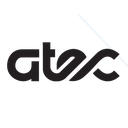
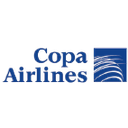 Gold
Gold
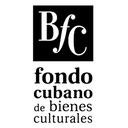 Gold
Gold
 Gold
Gold
 Gold
Gold
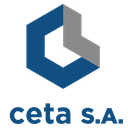 Silver
Silver